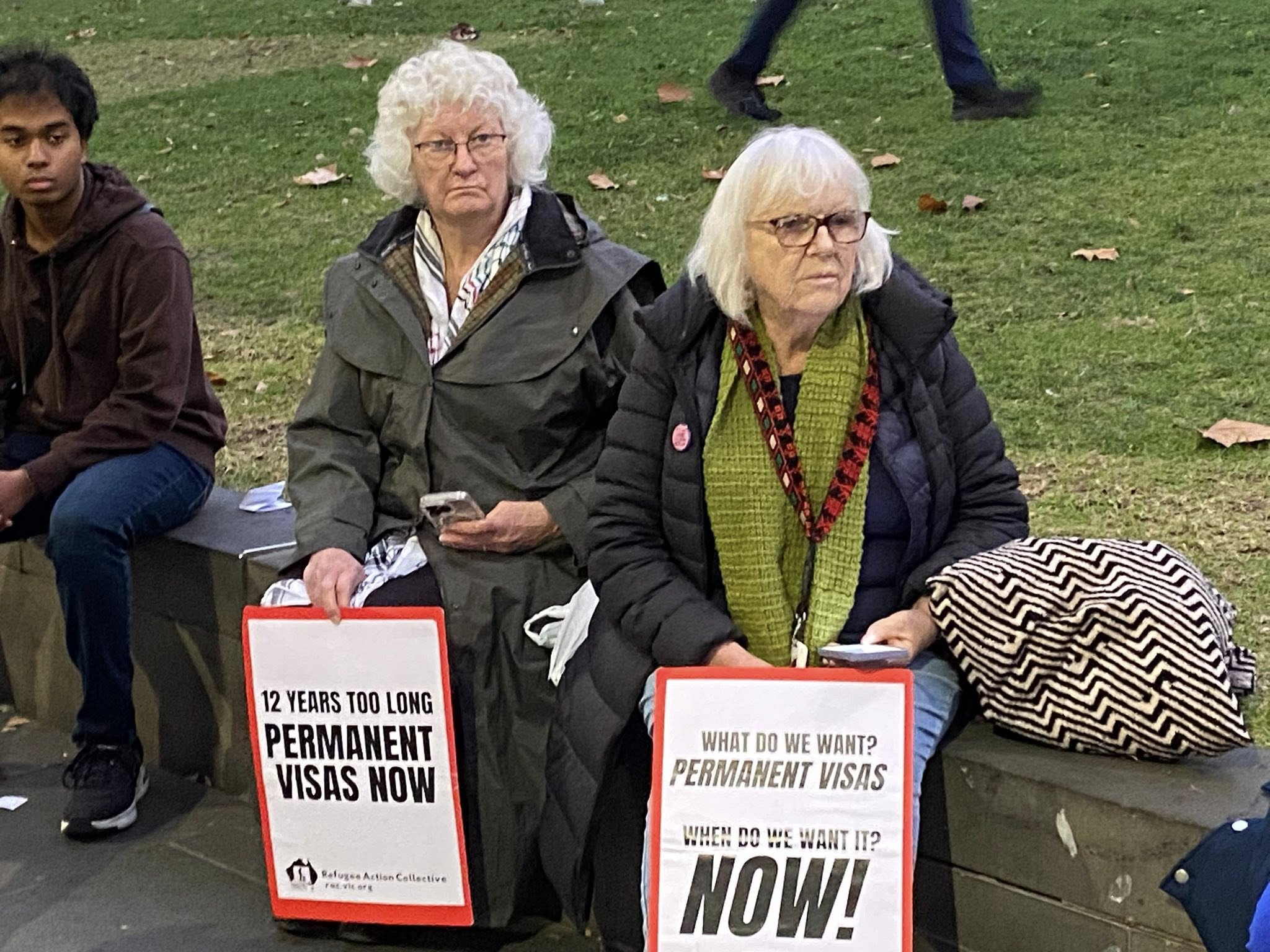
Refugee rights activists demanded permanent visas for all refugees on World Refugee Day, June 20.
The rally at the State Library in Naarm/Melbourne, organised by the Refugee Action Collective, demanded permanent visas for the 8000 victims of the failed “fast-track” system and those who came to Australia under the now-defunct Medivac law.
It said the remaining refugees and their families in Port Moresby, Papua New Guinea, must be brought to Australia, as well as the 100 asylum seekers on Nauru. It said the ban on bringing 12,000 refugees marooned in Indonesia should be lifted and the Trump-style laws, passed last December, that threaten up to 80,000 people with deportation to danger, must be repealed.
A statement from 16-year-old Danushka Sangeethan, originally from Tamil Eelam, was read out by Tamil refugee activist Rathi Barthlote. She said she faced “immense uncertainty” and “despair”, having been born in a refugee camp in India and coming to Australia when she was 12 years old, but is still waiting for a permanent visa.
Over the past few months, only a handful of families, including those who arrive as unaccompanied children, have received permanent visas, through “ministerial intervention”.
Sangeethan said people like her, who have grown up, gone to school here and raised families here, are still treated as though “we don’t belong”. “We need a collective solution, one that leaves no one behind,” she said.
Sangeethan works as a community organiser with refugees, based at the United Workers Union (UWU), which is leading the campaign for permanent visas for those impacted by the fast-track process.
She highlighted how one group the government continues to ignore are “the men who fled war zones” by boat, but “who didn’t risk bringing their families”. Many haven’t seen their wives or children for “over a decade”. “They missed everything, first steps, birthdays, graduation. Their children have grown up without them. This is not just about visas, it’s about deliberate permanent family separation, and it’s inhumane.”
She said many young people like herself have dropped out of school because they have “lost hope”. “They feel unwanted. They feel like this country has no place for them.
“It’s not right for anyone, let alone kids, to live under constant threat, with no rights, certainty, no pathway forward,” Sangeethan said, adding that the Albanese government is hypocritical.
“Labor has been in power for more than three years. They know our stories. Many of their MPs talked with us at rallies when they were in opposition. They said they believe in justice. But since coming to power, they have given us nothing but silence, delay and new deportation laws. We have to make them act.”
Josephine Langbien, from the Human Rights Law Centre, told the rally we must “refuse to be silenced” by Labor’s “paper promises”. She said the fight needed to continue “until everyone has a safe and permanent future”.
Musician Taqi Azra, a Hazara refugee who came to Australia by boat in 2010 and is now an Australian citizen, described his recent experience organising a big music concert in Jakarta.
“Thousands of people, including children ... are living in limbo because they cannot go back to Afghanistan ... and they are living in Indonesia without basic rights.” He said the concert was designed to bring a “smile to their faces”, to help them “stay strong”.
Azra sang a song he composed titled “I am a migrant and my homeland is on my shoulder”. He said it conveys the message that “refugees are not criminals; they are leaving their homeland because of the war. And they are coming for their safety.”
Azra, who is an UWU official, said “thousands” of refugees from Afghanistan have been sent to a third country, like Indonesia, and many have families in Australia. “Their family members are paying taxes here in Australia. But the Australian government and the immigration department are forgetting them there and ignoring them. It’s been more than 10 years that they have been living in Indonesia.”
rac_fb.jpg
